Youth Voter Turnout in NYC Is Struggling. These Organizations Want to Fix It.
A lack of knowledge about the process—from registration to marking a ballot—is often the main barrier between youth and voting. “If young people sit it out, that will have an impact.”
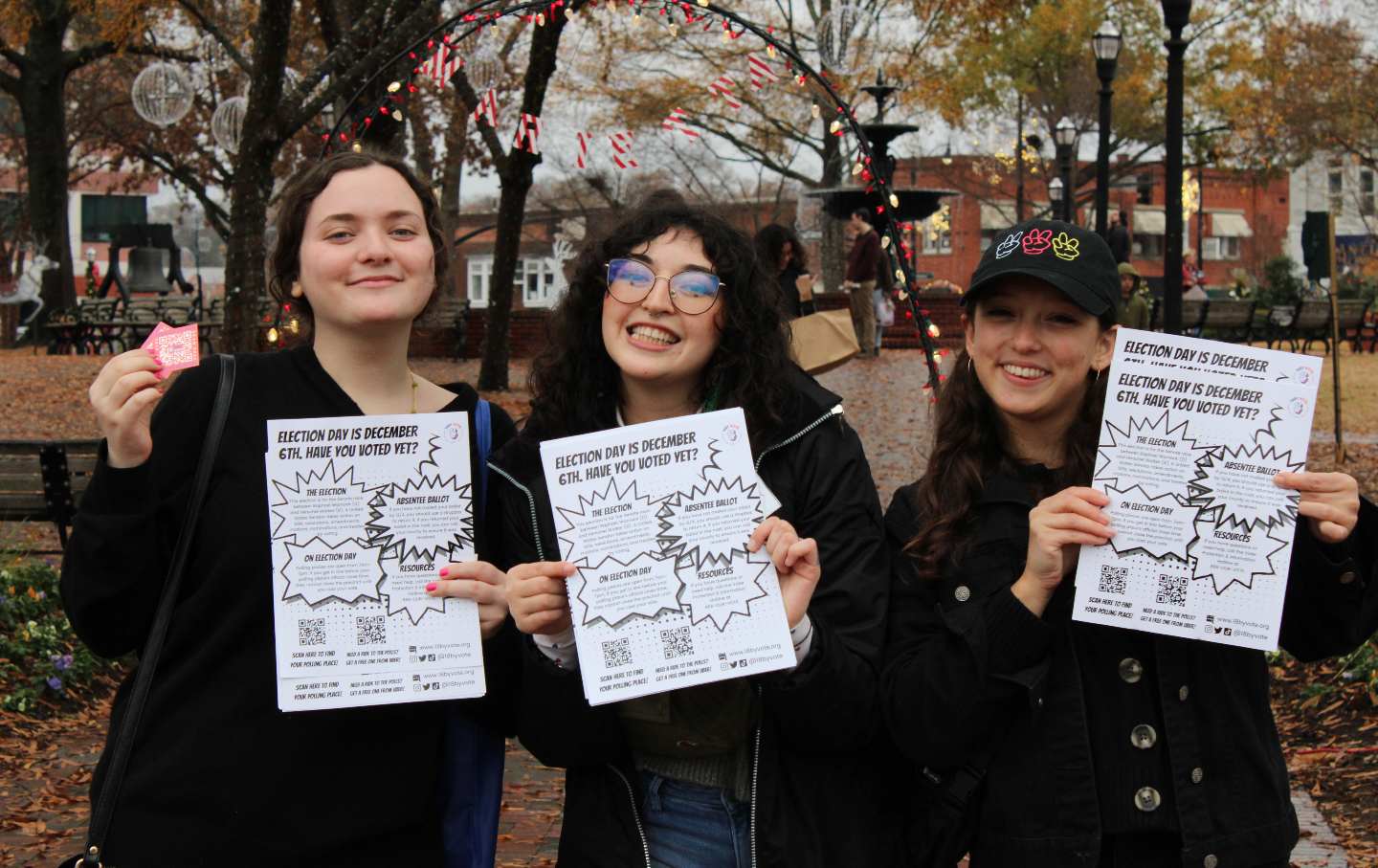
Members of 18by Vote engaging in youth peer-to-peer organizing.
(Jessika Landon)
Despite a marked increase in enthusiasm among the Democratic Party and young people, advocates and activists maintain growing concern over youth voter participation this November—especially in traditionally blue New York State.
“Historically, New York has some of the worst voter turnouts in the nation and that includes young people,” said Justin Yulo, a project coordinator at the New York Public Interest Research Group.
Many young voters have not yet been persuaded by either party, with Kamala Harris’s history as a prosecutor and the Biden administration’s continued support of the brutal war on Gaza weighing on progressive voters. These fears were exacerbated by the Democrats’ refusal to put a Palestinian speaker on stage during their four-day convention, giving pause to activists hoping for a more aggressive posture against Israel’s war from Harris.
“We live in an underfunded and over-policed neighborhood, and nothing has ever changed. No voting has ever changed that,” said Victoria, a 20-year-old student at the City University of New York. “Whatever party is in charge has not changed that. So why even try?” she said. She emphasized the magnitude of the Israel-Gaza conflict to younger voters, especially those in New York City. “By not being pro-Palestinian and not advocating for an immediate ceasefire or for Palestinian liberation, you are turning away a big demographic for youth voters.”
New York will be nothing short of a key battleground this year, as a minimum of seven out of 26 congressional seats are expected to be tight races as Democrats and Republicans fight for control of the House.
Consequently, several organizations have stepped up to spur interest among youth voters in New York—not just in the presidential election but also in races for the New York Senate, Assembly and congressional seats.
The 2020 presidential elections saw record youth turnout. In New York City, 59.3 percent of voters aged 18–29 participated in the general election, a 3.4 percent increase from the 2016 general election, according to the New York City Campaign Finance Board.
“A common misunderstanding is that young people are apathetic about politics,” said Lucille Wenegieme, recently appointed executive director of Headcount, a national nonprofit dedicated to promoting civic engagement through music and entertainment. “In reality, they are deeply passionate about a broad spectrum of issues from social justice to economic opportunity,” Wenegieme said. “What they need is access, information, and encouragement to turn their passion into action.”
On May 8, the Type Media Center in conjunction with the Puffin Foundation held an event with more than a dozen different organizations—including Headcount, which won the night’s Creative Citizenship award—seeking to address obstacles that hinder the youth vote in New York. [Full disclosure: The Puffin Foundation is the primary funder of StudentNation, the program under whose aegis this article is published.]
Promoting youth engagement holds personal value for the Puffin Foundation’s president, Neal Rosenstein. As a student at SUNY Purchase more than 40 years ago, Rosenstein sued the State Board of Elections for the right to vote on campus, using the address of his Westchester student apartment where he was counted as a resident, according to the US Census.
“The Puffin Foundation has embraced democracy and the right of young people for their voices to be heard,” Rosenstein said. “It’s part of our DNA. The youth are gonna inherit the earth. There is no one better that we should be focusing on empowering, because you have the most at stake, you have the most idealism, and usually are the least corrupted by feelings of greed or selfishness or other forces that tend to weigh heavily as they seem to grow older—not me I hope!”
This electoral cycle, a sizable number of youth voters have committed themselves to the “uncommitted campaign,” making clear their dissatisfaction with the Democratic Party’s stance on Gaza. According to the Uncommitted National Movement, more than 101,000 people voted “Uncommitted” on Super Tuesday. In total, as many as 500,000 Americans voted “Uncommitted,” “No preference,” and “Uninstructed” in the Democratic primaries.
Voting “Uncommitted” can be a “great organizing tactic” in the presidential primaries, says Ava Mateo, the president of youth-led organization 18by Vote. However, in the context of the elections in November, she says it is less useful since the candidates are decided, and cannot be changed, unlike in the primaries.
“No matter what, I would encourage people to show up to the polls, vote down your ballot, and really look at all of the different ways that you’re being represented. Look at the issues that matter to you and see where the candidates stand on those,” Mateo said. “Gen Z is not motivated to vote based on politicians. They’re motivated to vote based on the issues that they care about. And so that is the way that we need to really be talking about elections.”
Shabiq Kennedy, a student at CUNY Hunter College, voted “Uncommitted” in the New York Democratic primaries. For Kennedy, the foremost reason was “the ongoing genocide in Palestine and perpetration of it by the Biden administration,” but they also felt a shift in ideas and rhetoric of the Democratic Party.
Despite the change in candidacy, the Harris-Walz ticket does not move Kennedy, who remains set on voting “Uncommitted” in November. “If I chose to not vote ‘Uncommitted,’ I would be stating that any candidate is permitted to completely ignore the ideas and will of their voter base, as long as they wear a blue pin,” Kennedy said. “I severely doubt that the Democratic Party will listen to the voters dissatisfied enough to do the same as me, but it will send a message that the things happening cannot continue with the consent and approval of me and many others.”
Olivia Brady, the youth programs manager for the New York City Campaign Finance Board, believes that in order to increase youth voter turnout, there needs to be a cultural shift to address what she believes to be a systemic issue. “A lot of times, those conversations about voting are saying that voting is your civic duty. Or if you don’t vote, you don’t get to complain,” Brady said. “But nobody has really taken the time to take it a step further to explain what’s going on, explaining how our taxpayer money is actually allocated, how that it’s tied to our vote, and really emphasizing the fact that our elected officials really listen to people that turn out to vote.”
Brady oversees engagement strategies in low-income neighborhoods like the South Bronx, Jackson Heights, and East New York. Some of these strategies include voting registration workshops and civic engagement sessions for high school and college students, as well as a paid youth ambassador program for older teenagers. The youth ambassadors travel around the city to share voting and election information and help mobilize young people to be more civically engaged. NYCCFB also hosts “Get Out the Vote” events at NYC schools, places of worship, and local libraries.
Popular
“swipe left below to view more authors”Swipe →Like Brady, Blair Horner, executive director of New York Public Interest Research Group, believes that a lack of knowledge about the voting process—from registration to marking a ballot—is often the main barrier between young people and the voting booths, which could swing many of the elections in 2024. “In a deeply polarized country, which is essentially 50-50 Democrats-Republicans, new voters will make all the difference. If young people sit it out, that will have an impact. And if young people turn out, that will have an impact, no matter what young people do, they will have an impact,” Horner said. “The question is, do they show up? And how do they vote?”
Ariadna Pavlidis, the student president of Hunter College, believes that civic engagement through voting is “crucial” for her generation, especially for CUNY students as the election has a potentially greater impact for her and her peers than for many other Americans. “While it’s understandable that many of us might feel disconnected from the candidates or disillusioned with the political system, it’s important to remember that our vote is a powerful tool for sending a message to those in power about our needs and values,” said Pavlidis. “The political process can be slow and frustrating, but the changes we advocate for are worth the wait.”
For Justin Yulo, increasing youth turnout starts with not only with registering but also doing on-the-ground work to combat voter suppression and promote policy reforms such as the New Deal for CUNY and SUNY. In 2022, New York implemented new measures to increase college campuses’ accessibility to polling places, including a new policy that any school with at least 300 registered voters should have a polling place on campus.
Looking ahead to November, Yulo believes the youth turnout could have a decisive impact on local elections, such as the race in Long Island’s District 3, to replace former representative George Santos, and several swing districts that could help determine whether the Democrats regain control of the House.
With the lack of satisfaction many feel with the two-party system—and the presidential candidates that lead them—many young people simply do not feel like participating in the system with the cost of living at an all-time high, worsening climate change, and domestic injustice running rampant as we fund wars overseas. “I can absolutely understand the circumstances of what students may not feel like voting,” said Yulo, “but I’d say it is a way to show your priorities as a student.”
“The student vote really does matter,” he said. “In these local elections, there are tight congressional races that are decided upon by only just a hundred votes.”
More from The Nation
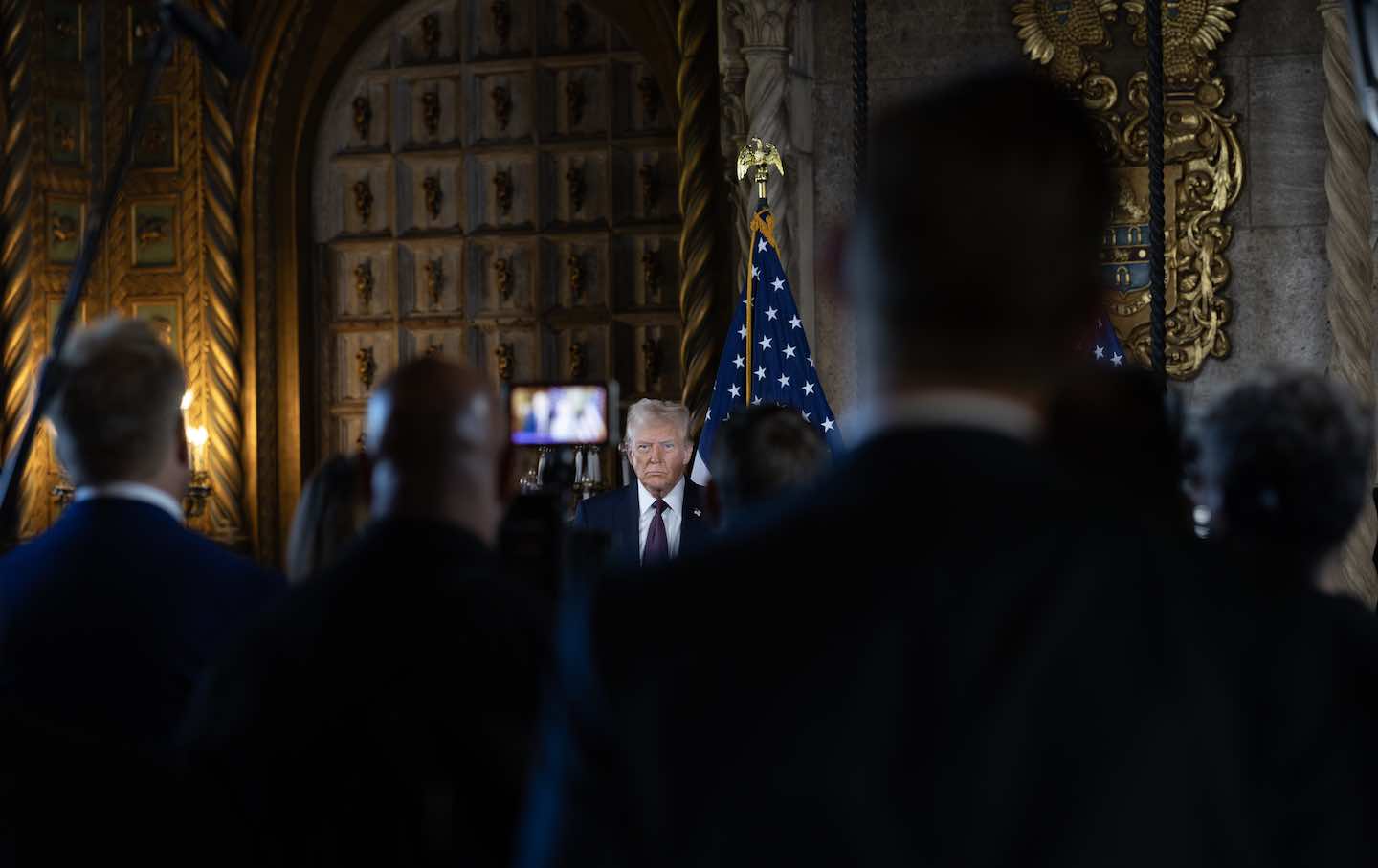
A Trump L’Oeil and More Signs of What’s to Come A Trump L’Oeil and More Signs of What’s to Come
Taking the president-elect at his word, it will only get worse from here.
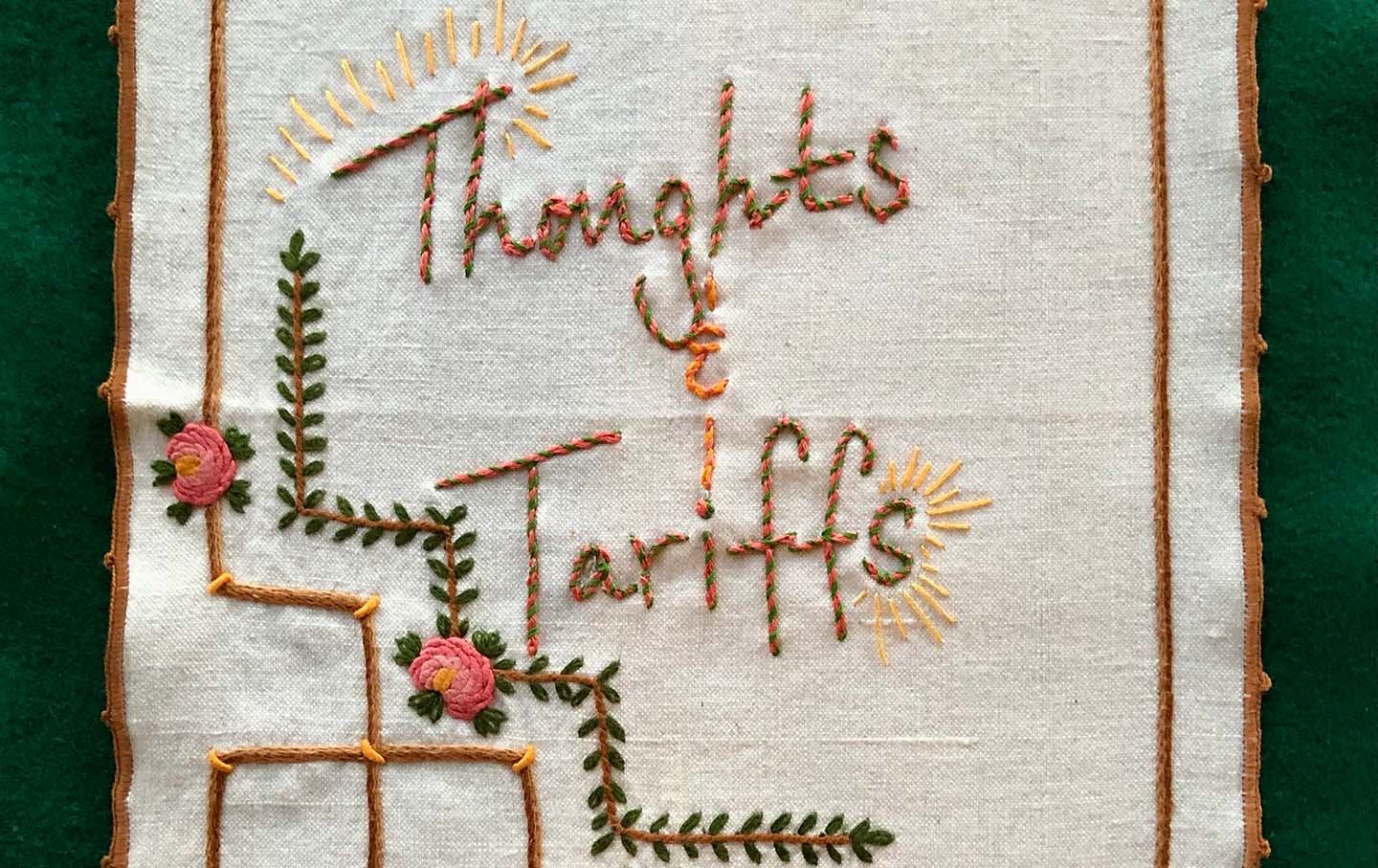
Coming Soon Coming Soon
Donald Trump has threatened tariffs on imports from Mexico, Canada, and China, which will affect prices for consumers.
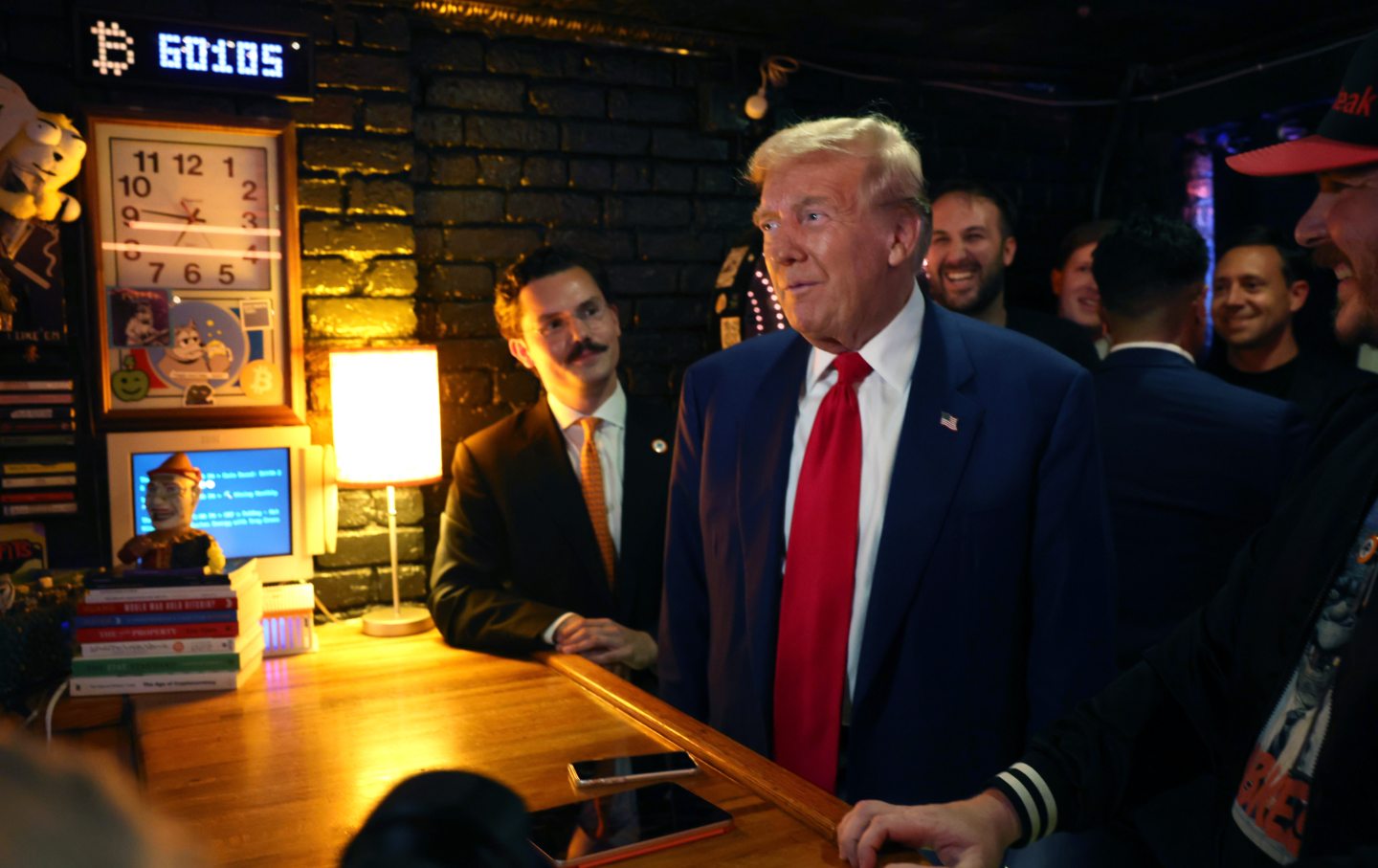
Trump and His Crypto Cronies Have Big Plans. Be Afraid. Trump and His Crypto Cronies Have Big Plans. Be Afraid.
The incoming president and his Bitcoin-loving acolytes want to turn the government into their personal ATM.
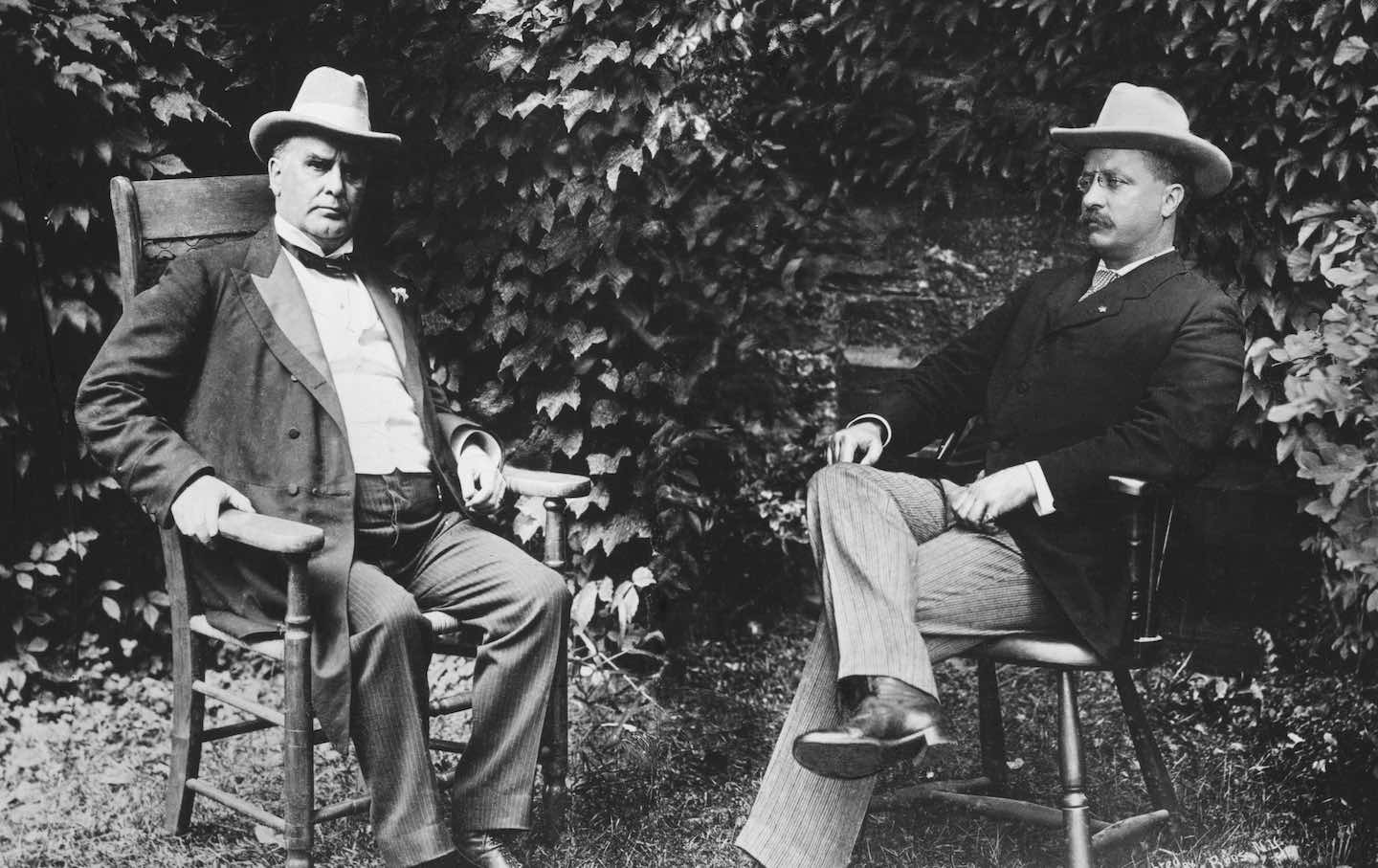
Donald Trump Is Building a Bridge to 1896 Donald Trump Is Building a Bridge to 1896
The president-elect promises to rule with robber baron tactics and imperial belligerence—just like his role model, William McKinley.

Our Future Copresidents Wage Garbage Wars on LA Fires Our Future Copresidents Wage Garbage Wars on LA Fires
Racist, stupid crap—that’s not unexpected. What we need is a tough local and national Democratic response. To everything.



